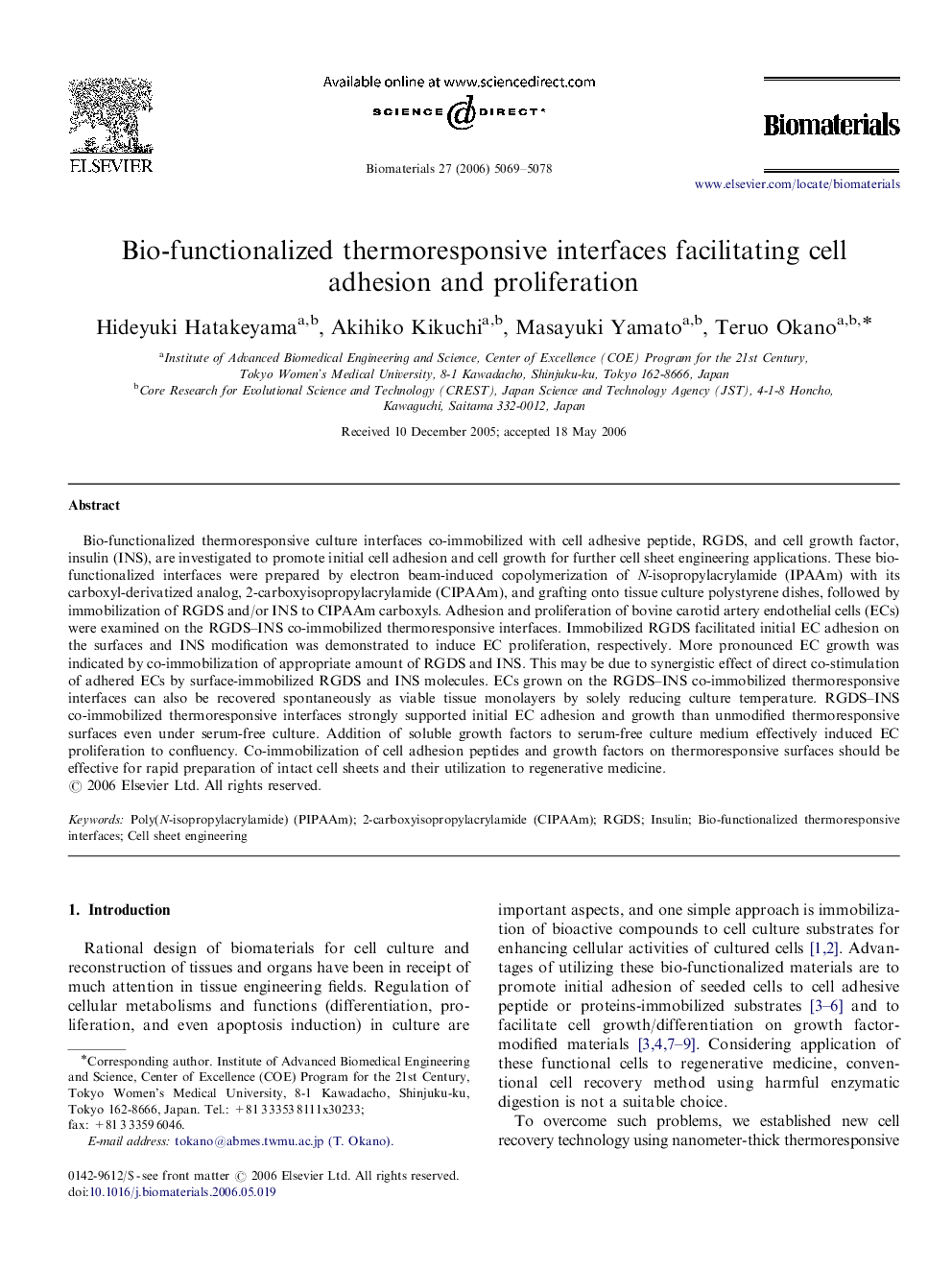| Article ID | Journal | Published Year | Pages | File Type |
|---|---|---|---|---|
| 11823 | Biomaterials | 2006 | 10 Pages |
Bio-functionalized thermoresponsive culture interfaces co-immobilized with cell adhesive peptide, RGDS, and cell growth factor, insulin (INS), are investigated to promote initial cell adhesion and cell growth for further cell sheet engineering applications. These bio-functionalized interfaces were prepared by electron beam-induced copolymerization of N-isopropylacrylamide (IPAAm) with its carboxyl-derivatized analog, 2-carboxyisopropylacrylamide (CIPAAm), and grafting onto tissue culture polystyrene dishes, followed by immobilization of RGDS and/or INS to CIPAAm carboxyls. Adhesion and proliferation of bovine carotid artery endothelial cells (ECs) were examined on the RGDS–INS co-immobilized thermoresponsive interfaces. Immobilized RGDS facilitated initial EC adhesion on the surfaces and INS modification was demonstrated to induce EC proliferation, respectively. More pronounced EC growth was indicated by co-immobilization of appropriate amount of RGDS and INS. This may be due to synergistic effect of direct co-stimulation of adhered ECs by surface-immobilized RGDS and INS molecules. ECs grown on the RGDS–INS co-immobilized thermoresponsive interfaces can also be recovered spontaneously as viable tissue monolayers by solely reducing culture temperature. RGDS–INS co-immobilized thermoresponsive interfaces strongly supported initial EC adhesion and growth than unmodified thermoresponsive surfaces even under serum-free culture. Addition of soluble growth factors to serum-free culture medium effectively induced EC proliferation to confluency. Co-immobilization of cell adhesion peptides and growth factors on thermoresponsive surfaces should be effective for rapid preparation of intact cell sheets and their utilization to regenerative medicine.
